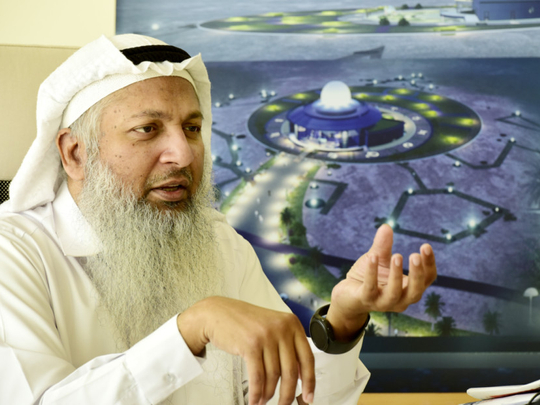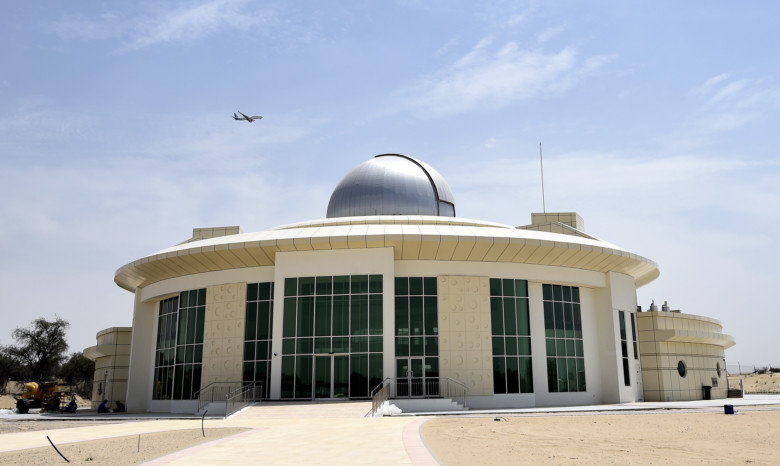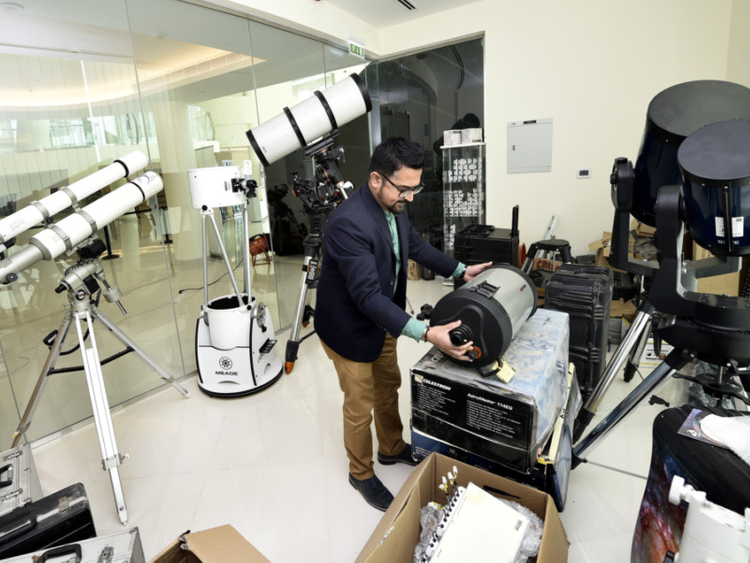
Dubai: How would you feel when you are holding a stone which was part of the making of the solar system 4.5 billion years ago?
Well, you can soon lay your hands on such stones and pieces of meteorites that are billions of years old right here in Dubai.
You can even buy these pieces of meteorites at the Al Thuraya Astronomy Centre which will have a grand opening on the 46th UAE National Day.
Located in the Mushrif Park, the UFO-shaped state-of-the-art astronomy centre, will officially open on December 2, Hasan Al Hariri, CEO of the Dubai Astronomy Group (DAG), which runs the centre, told Gulf News in an interview.
“We might have a soft launch before that. But the grand opening will be in December after the arrival of the main telescope,” said Al Hariri.
Apart from the largest telescope in the country and other unique facilities that will take stargazers closer to the sky, the centre will enable visitors to explore the science of astronomy in a simple and enjoy the experience, he said.
The visitors to the centre will have an opportunity to see, touching and even buy pieces of meteorites some of which are 4.5 billion years old.
“We have a rare collection of the rocks which were part of the formation of the solar system and other astronomical events. These oldest pieces of meteorites will be a big attraction for the visitors. Some of them were found right here in Jebel Ali,” said Al Hariri.
The ages of these stones, collected from different parts of the world where meteor showers took place, were scientifically verified. The centre has a large collection of these stones and will be selling them through its souvenir shop for “not very high prices,” said Al Hariri.
“These are unique pieces of our universe from the beginning of the solar system. Each meteorite has something beautiful to say about how the solar system has been made. They have very unique properties which you can explore with a microscope.”
He said the DAG has plans to start a separate Meteorite Centre for its huge collection of meteorite rocks.
While most of the museums and observatories would prohibit visitors from touching the exhibits and telescopes, he said, Al Thuraya Astronomy Centre will welcome the public to “touch and feel everything and take home the memories of exploring them first hand.”
The whole project is estimated to cost Dh50 million. Dubai Municipality, which constructed the building, has handed it over to the DAG for running the centre.
“We are thankful to the municipality for supporting our idea and vision and providing us the land and building. We have started our interior works and one of the main telescopes has arrived. This is the second such telescope in the country with a 16-inch lens,” said Al Hariri.
Largest telescope
The main telescope, which will have a one-metre diameter lens, will be the largest in the country for public observation.
“It is being customised for us in the US. There will be multiple eyepieces that will help speed up the process [of observation] and offer an enjoyable experience to a group of people observing the sky together.”
“Though we are inside the city, the big aperture will help see the stars, nebulas and galaxies without much light pollution. It can join the global network of one-metre-size telescopes and do collaborative work. We can also share our experience with Nasa.”
The protective dome of the observatory where the telescopes will be kept also has some unique features. “It is 10 metre in size [diameter]. There is nowhere around the globe such a steel dome with rig-standard steel used for any observatory to withstand the hot weather here and avoid corrosion for a long time.”
There will be other smaller telescopes that are available for rent. Visitors will be able to take them out in the park or the terrace of the centre.
The ramps at the observatory will showcase eight stories about the history of the universe in a simplified and attractive way.
A Mars Habitat, where people can experience life on Mars, is another unique feature of the centre. “Exploring the Mars Habitat will be an interacting and learning experience which will make people become more eco-conscious,” said Al Hariri.
A museum, a library, an academy, a sprawling observation deck, a souvenir shop, and a food court — all themed around astronomy — will be the other highlights of the centre.
“Entry to all these places, except the observatory, will be free. We are working on the ticketing system for the observatory,” said Al Hariri.
“Our aim is to make this centre a place for people to come and socialise and learn about the universe in a friendly and interactive way.”
Star gazing parties, zero gravity experiences, astrophotography and astro-sports will be organised to boost the footfall of residents and tourists to the centre. It will be operational 24/7 and will offer solar studies and other research works during the day time.
Al Hariri said in a country which is planning to go to Mars in 100 years, this centre will encourage the future generation to focus more on science.














